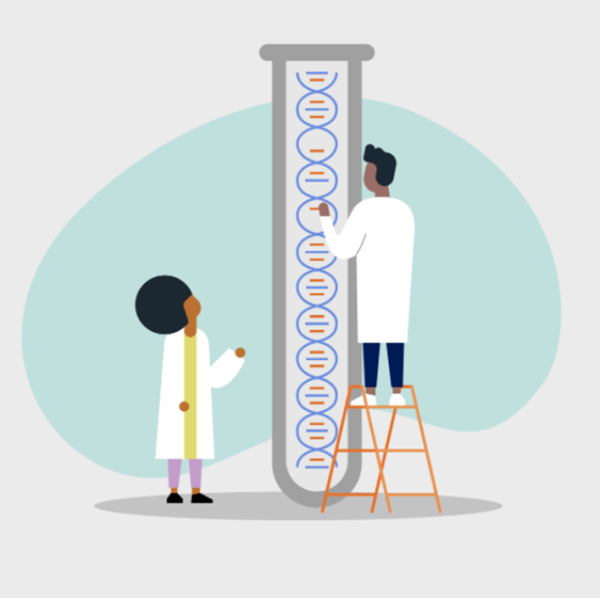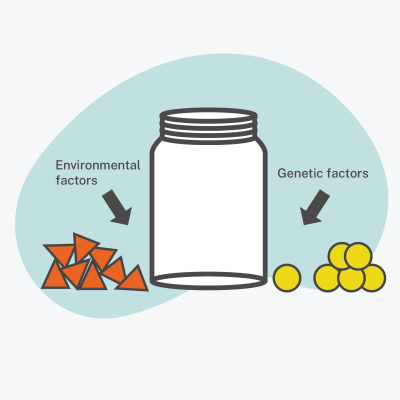
We’ve completed the analysis of your genome sequence.
You may remember joining NIH study 17-I-0122. This study offered genetic testing called genome sequencing. We looked at nearly all of your DNA in detail. Genes are made from DNA and are the instructions for our bodies.

We did not find a genetic cause for your symptoms.
We looked for differences or variants in your genes that could connect to your symptoms. We did not find anything to share with you.

We discussed that mental illnesses are caused by a combination of multiple genetic and environmental factors.
We did not expect to find a single genetic factor that explained your mental health history.
Your negative report does not mean that there are no genetic factors contributing to your mental health history.

We also did not find any reportable secondary findings.
Secondary findings are variants in genes that may put a person at risk for rare, serious disorders that can be prevented or treated. Often, secondary findings are not related to your symptoms. Most of them have to do with risk for certain types of heart disease or cancer.

No test is perfect. You may still have gene variants that are important for your health.
This test may have missed variants that are important for your health, including things that cause your symptoms. You should continue to work with your doctors to determine the best ways to care for your health, including having routine screenings. If a provider recommends further genetic testing, you should not assume it will be negative.
Some variants may not have been detected due to limitations in sequencing and analysis. The interpretation of your data is based on what we know now. New discoveries may change our analysis. We may provide updates to this report.

Next steps.
Please find your personal report in the patient portal. This report is a complex document that may be most helpful to your doctors.
If you’d like to talk about your result, please email our team at NIMHGeneticsSurvey@mail.nih.gov.


